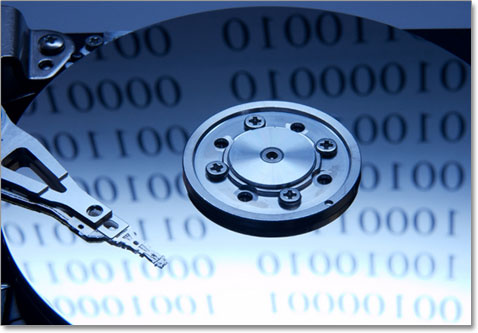Answers to your data storage dilemma

Many precious moments only happen once, never to be repeated. Remember those pictures taken on your wedding day or the video from your child's first birthday party? We all hold those moments dear and want to protect them. And so when it comes to making a decision to invest in backing up your data permanently, there are many questions that may cross your mind.
The subject is not as simple as many people may think. I know that at this point you are already thinking that the data could be copied to a CD or DVD, or simply secured in a cabinet and that it would last eternally. I hate to burst your bubble, but sadly this is not true. Therefore, I came up with a short list of common formats many of us usually consider for archiving priceless data. Keep in mind that not all formats are "convenient" for every application.
Because of its great popularity, I will start with the Solid State Drive (SSD). The life span of this type of storage media depends on the usage. Some experts in flash technologies say that the amount of writes to these drives vary between 10,000 - 1,000,000 times. This means that the more we erase and re-write to the drive, the shorter the life span.
Flash media or "flash drives" has been on the rise for the past few years due to its portability and compatibility with most computers. USB ports have become indispensable in our computers making our famous "flash drives" very popular on the market. You may believe that since flash drives don't have any moving parts, using this method would be the most adequate for a long term backup plan. Let me tell you that to some level you would be correct, but the average data retention of an unused flash drive is approximately 10 years.
The other type of hard disk or "hard drive" would be the typical magnetic drive. These hard disks have moving parts and generate more heat when in use, making them more vulnerable to failure than SSD drives which don't have any moving parts and require less electricity to run. When utilized on a regular basis, they last for around five to six years. However, if the hard disk is only being used or accessed as a backup drive, then we can presume its life span may at least double.
Standard optical media has been gaining a lot of popularity over the past few years due to the never ending increase of storage capacity. This type of media includes CD, DVD and BluRay. If selecting this media type, make certain you purchase a high-quality brand. A quality brand will almost always be the best choice for any application, whether it be archiving for the long term, duplicating or just burning some MP3 files to listen to your favorite songs. Quality brands are made to perform better and last longer. Remember, you get what you pay for.
This would be a shocker for many people, but as I am writing this article in 2017, tape backup actually holds one of the best data retention rates, which is why it continues to be heavily used in the banking industry and government sectors. Normally, the tape manufacturer will guarantee the product for 30 years, with projected life anticipation ahead of that. Tapes themselves are inexpensive and capacities are usually high between 10 - 15 Terabytes. Just keep in mind that the actual drives used to run those tapes are somewhat pricey. Now that you know the facts, make your choice wisely.